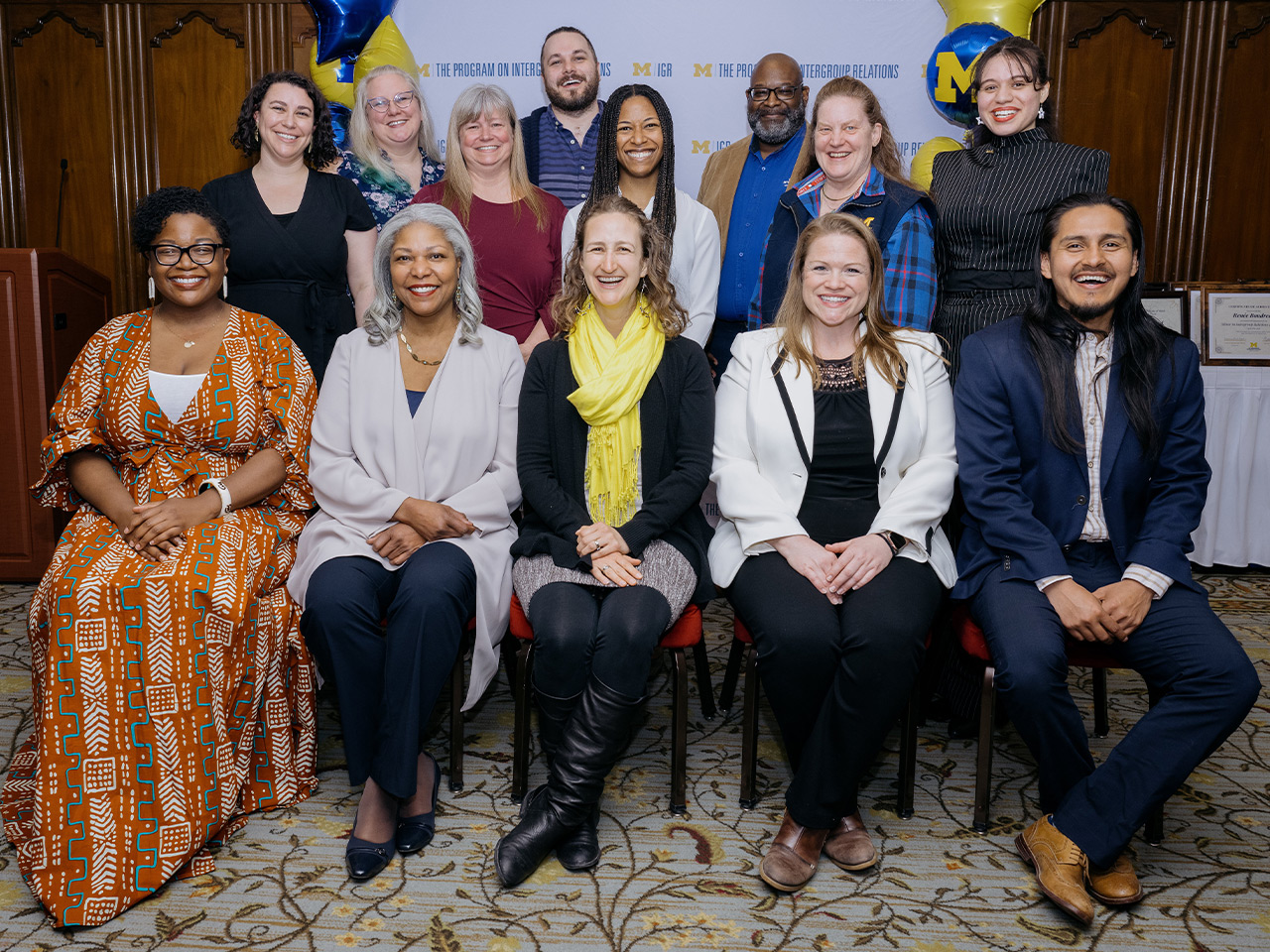
IGR faculty and staff offer consultations for higher education colleagues that are outside the University of Michigan (U-M) to advance intergroup relations education across the country. Consultations typically involve on-site or virtual workshops tailored to the specific needs and goals of the host institution. Coaching and support are also available individually by email, phone, etc.
Consultation workshops are not a substitute for attending the National Intergroup Dialogue Institute. The IGD Institute will provide institutions with materials for development of intergroup dialogue and dialogic education. Learn more about the IGD Institute.
Initial consultation workshop
These workshops are those designed to introduce Intergroup Dialogue pedagogy to a broad institutional community for their support and use. Participants learn about the theoretical underpinnings of IGD, are introduced to the University of Michigan's 4-stage model for IGD, and engage in common IGD experiential exercises. Participation is typically capped at 24 (virtual) to 35 (in-person) participants.
Additional consultation workshops
These workshops are designed to train the specific members of the community who will do the actual “hands-on” work of the program. These workshops often have a smaller number of participants than the initial workshop.
Process
What to expect after you submit a consultation request:
- Our staff consultants will review your request and reach out to you via email to follow up.
- We will invite you to have at least one intake conversation with us over phone/zoom to learn more about your needs and how they may align with our offerings.
- If we mutually agree to move forward with a consultation, we will schedule your consultation and assign IGR facilitators. If a consultation with IGR is not appropriate, we will do our best to connect you to other useful resources.
- IGR consultants and facilitators will have additional conversations with you to clarify goals, support identifying participants, and create an agenda.
- Our IGR staff and faculty facilitators complete your workshop.
- Once your consultation workshop is complete, you will be sent an invoice for our services.
Additional information:
- Usually, on-site workshops are most effective after some community members have attended the annual National Intergroup Dialogue Institute.
- Persons considering consultations may be interested in this useful article, Rallies, Protest, and Institutional Change: How Consultants Can Address Campus Climate, by our colleage Dr. Kristie Ford.
For more information about consultations for your institution, please contact [email protected].
Impact
Awards and recognitions
- In their final report, The Future of Undergraduate Education, The Future of America (2017), the American Academy of Arts and Sciences makes a case for the importance of intergroup dialogues and lists the Program on Intergroup Relations as a “best practice” (see page 13). The report, a two-year national survey, thoroughly examines the current state of American undergraduate education and makes recommendations for strengthening all aspects of it.
- President Clinton's Initiative on Race cited the Program on Intergroup Relations as one of fourteen "Promising Practices" that "successfully bridge racial divides in American communities." IGR was one of only two programs in higher education to receive this recognition.
- The US Department of Education's Gender Equity Expert Panel cited IGR as "Promising Intervention" in the "prevention of sexual and racial harassment and violence against students in higher education." The panel rated IGR as "excellent" on significance and usefulness to others/replicability, "very good" on quality, and "good" on evidence of effectiveness.
- The American Association of Higher Education, the American College Personnel Association, and the National Association of Student Personnel cited IGR as an "Exemplary Practice" (1998). The Theodore M. Hesburgh Awards Program of TIAA-CREF awarded IGR a Certificate of Excellence in Faculty Development (2000).
National impact
IGR has been adopted as a model for the development of programs at several universities including:
- University of Massachusetts-Amherst
- Occidental College
- Syracuse University
- Villanova University
- Cornell University
- Skidmore College
- UCLA
- University of Illinois at Chicago
- Northwestern University
- Augsburg University
- Cal Poly
- University of Manitoba
- Vassar College
- Knox College
- Georgetown University
- University of Pittsburgh
- Chatham University
- Michigan State University
- Rutgers University
- Muhlenberg College
- Washington University
IGR has completed recent consultations with Georgetown University, University of Pittsburgh, Princeton, University of Illinois at Chicago, Calvin College, SUNY at Geneseo, and Rensselaer Polytechnic Institute.
